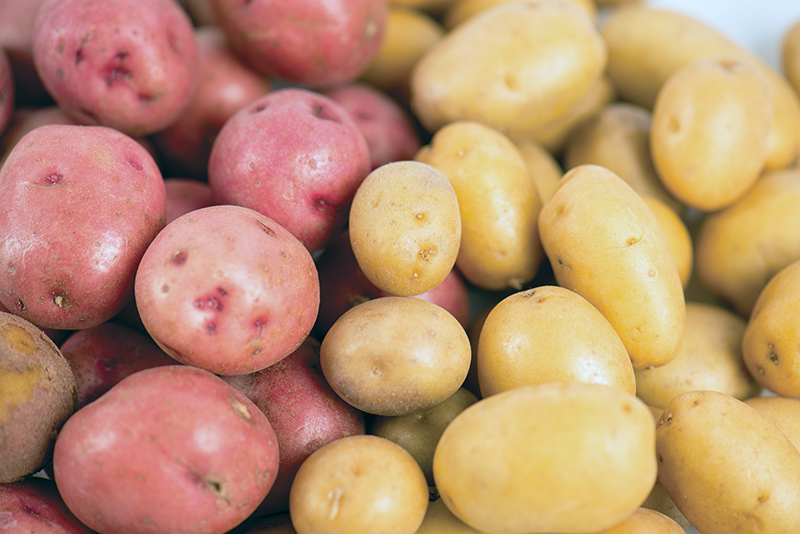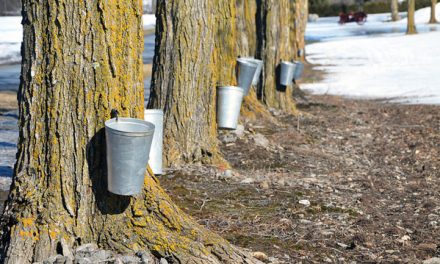The Prince Edward Island Potato Board was caught by surprise in 2021 when the Canadian Food Inspection Agency (CFIA) suspended the certification or suspension of exports of potatoes from Prince Edward Island to the provinces’ United States market.
The decision was based on the discovery of potato wart in some potatoes on the island.
The suspension was triggered by the United States.
Potato Wart Disease is a fungal disease of potato sprouts, eyes and stolons. It does not affect roots and it is not harmful to health.
The American market represents $120 million to the Prince Edward Island potato industry.
The issue has been languishing unresolved for 10 weeks.
On Jan. 27 the Canadian Minister of Agriculture and Agrifood, Marie-Claude Bibeau travelled to the United States to find a way to clear the path to opening up potato exports to the United States market.
PEI potatoes are currently being sent across Canada, and there has been no sign of the potato wart.
“I think the suspension was put in place with an overabundance of caution,” said Greg Donald a spokesperson for the PEI Potato Board. Donald added, “If they were to lift the suspension today we would be able to start right back up today.”
He said, “They are safe. In the last 10 weeks they have not come up with any reason why they shouldn’t lift the suspension so it’s time. We will have to see.”
The suspension has caused catastrophic economic situations for farmers who cannot sell their potatoes to the world market and the PEI potato industry in general, from truckers to processing plant employees to grocery stores in the United States.
A suggestion from the CFIA that markets other than the United States might fill in the loss of the American market, have been met with polite criticism by the potato industry.
It has taken hundreds of years to establish the good working relationship between the PEI potato industry and its global market. Establishing new markets will not be easy or a quick solution to something that appears to be a non-issue with potato producers in Canada.
“Our table potato’s we ship are from pest free areas, and in addition to that they are pretty standard in the potato world risk mitigation measures. They are washed so there is no soil on them, they apply sprout inhibiters so they cannot grow and then they go into a consumer pack to households.”
A 2020 economic impact study found that the industry is worth over a billion dollars to the island economy each year. Prince Edward Island Potatoes are grown for three specific markets: Table potatoes, sold to retail and food service sectors. Processing potatoes, manufactured into French fries, potato chips, and many other products, and seed potatoes, grown with high quality and health standards to yield future commercial potato crops.
Approximately 60 per cent of Prince Edward Island potatoes are destined for processing, 30 per cent go to the fresh market through retail or food service, while 10 per cent are grown for seed purposes. Seed and table potatoes are shipped to over 20 countries annually, including the United States, Puerto Rico, Ukraine, Italy, and Thailand.
Donald described the number of potatoes swinging in the wind and might have to be destroyed so to speak because of the suspension as an amount large enough to fill 25 NHL arenas piled two stories high in potatoes.
“Within the next two weeks, we will have to put them out in fields and put them through snow blowers which is unthinkable for a farmer to destroy good food.”
Farmers may not have insurance coverage for their losses, as the situation is the result of a trade dispute not natural events like weather.
The industry has a plan to combat the potato wart when it occurs. It is called the Long Term Potato Wart Domestic Management Plan. The plan originated with the CFIA. The purpose of the plan is to prevent the spread of the potato wart within the potato industry on the island as well in any potatoes destined for sale around the world.
Donald said, “I have been in this business over 30 years and the vast majority of farmers that we work with have never seen it.”
Donald explained that in the past 30 years the amount of potato wart in potato fields has been negligible thanks to the management plan and the due diligence of PEI farmers.
“The management plan has worked really well. The last thing anyone here would want would be for it to spread to their fields or a neighbour’s fields,” said Donald.
The CFIA decision has been criticized by the board who points out that there has been no incidence of potato wart discovered since it was discovered in 2000, thanks to the management plan, and the affected fields found to have it in 2021 were already identified as having it and the potatoes in the fields would never have been harvested for sale anywhere in Canada or abroad.
A press release from the PEI Potato Board stated: “It is the understanding of the Potato Board that this suspension comes as a result of a request from the United States Department of Agriculture (USDA), under threat of implementation of a federal order. Furthermore, the USDA’s basis for this action is predicated on feedback from a segment of the American potato industry, which is advocating for this suspension. Based on the communications that our growers, dealers, exporters and staff have had with numerous contacts in the United States, it is apparent that these calls for border restrictions are not representative of the majority of American industry stakeholders and buyers who need and want PEI potatoes this marketing season.”
The Potato Board suggested that issue was one that was politically motivated.
“This is solely a politically-based trade disruption that will limit trade in a year when potatoes are already in short supply across North America and globally. These trade restrictions will undoubtedly lead to higher grocery store prices for American consumers due to a lack of available product in regions that depend on Prince Edward Island potatoes. At a time when consumers are already facing rising food costs and food bank use has increased, trade restrictions based on political rather than scientific rationale is frustrating.”
There is a concern from the potato industry that as the suspension continues there will be long-term effects in the provincial industry and in the supply chain in Canada and in the Unites States.
The Potato Board believes there is, “negligible risk of spreading potato wart from the export of fresh potatoes, as existing trade regulations require potatoes originating from Prince Edward Island to be washed and treated with a sprout inhibitor. In addition, potato wart is of no risk to human health.”
Donald said, “Other concerns from the potato board is the number of potatoes that will end up in a landfill site if the suspension continues.
If this suspension of exports is not reversed, it will necessitate the destruction of hundreds of millions of pounds of high quality fresh potatoes, as potatoes are a perishable crop that cannot be stored indefinitely until market access is reopened.
This presents not only an enormous waste of nutritious food but also a potential environmental issue related to product disposal. The volume of potatoes that PEI normally exports to the United States meets the fresh potato needs of approximately nine million Americans each year. The Prince Edward Island Potato Board is calling for an immediate reversal of government-imposed restrictions on the movement of fresh potatoes. We call on representatives on both sides of the border to work without delay to resolve this issue. Without an immediate reversal of this decision, there will be far-reaching economic consequences not only for Prince Edward Island potato producers but also on the provincial economy, other Canadian potato producers, retailers, and consumers. About the PEI Potato Board: The PEI Potato Board represents PEI potato growers, working together to ensure the long-term profitability and sustainability through marketing, advocacy, negotiations, and activities to support quality potato production. Prince Edward Island potato farms grow one-quarter of Canada’s potatoes, injects more than 1.3 billion dollars into the Island economy, and employs approximately eight percent of the Island’s workforce.













